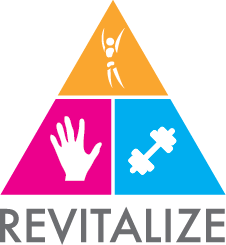When to Seek Urgent Help and How to Tell the Difference
At Revitalize Clinic in Gravesend, we treat thousands of patients every year who are suffering with back pain—some mild, some severe, and a few with conditions that need immediate medical attention. One of the most distressing things about back pain is not knowing what’s wrong. That fear and uncertainty often lead people to freeze, panic, or take ineffective action: over-restricting movement, seeking the wrong advice, or simply doing nothing.
In this post, I’ll help you understand how to differentiate between serious and non-serious back pain, when to seek an Osteopath, Personal Trainer, counsellor, or GP, and the red flags you should never ignore.
Why Understanding Back Pain Matters
Without clarity, many people end up ruminating, excessively stiffening their body, or avoiding movement altogether—ironically making the pain worse. But when we know what to look out for, we’re empowered to take the right action.
Thankfully, most back pain is non-serious and improves with guidance, movement and time. However, there are some key signs that may indicate more serious issues.
Let’s break this down logically, so you can ask yourself the right questions.
Step One: What Kind of Back Pain Is It?
Ask yourself:
- Is the pain localised or widespread?
- Does it change with movement or load?
- Does it feel mechanical or constant and unchanging?
- Does it radiate down the legs?
These are all clues to the nature of your back pain.
🌿 Local, Mechanical, Focal or Widespread?
If your pain is:
- Localised
- Worsens with specific movements
- Eases with rest or changes with posture
…it’s most likely non-specific mechanical low back pain (NSMLBP). This is the most common and least serious type of back pain. It responds well to manual therapy, exercise and time.
This is exactly the type of pain we treat daily at Revitalize Clinic, Gravesend, using a combination of Osteopathy, physical rehabilitation, and coaching.
Step Two: Who Should You See?
Did you know…?
- Osteopaths and Chiropractors specialise in back pain throughout their university training.
- Physiotherapists typically train more broadly in hospitals and then specialise in musculoskeletal (MSK) care after graduation.
So, if your back pain is mechanical, start with a specialist in MSK—like an Osteopath at Revitalize Clinic. You can often self-refer and get started quickly.
Step Three: Is It Nerve Pain?
Radiating pain can be scary, but not all nerve-related back pain is dangerous.
⚡ Less Serious Nerve Pain:
- Tingling
- Mild numbness
- Radiating pain into legs, without major strength loss
✅ You should see an Osteopath, Chiropractor, or MSK Physiotherapist. We’ll assess you thoroughly, provide immediate relief, and communicate with your GP if needed.
⚡ Moderate Nerve Symptoms:
- 50% loss of strength
- Objective numbness (you can’t feel touch or heat)
- No bladder or bowel issues
This is more serious but not urgent. You should:
- See your GP to begin diagnostic investigations.
- Also book with an Osteopath, Chiro, or MSK physio to speed up assessment and support.
❗ Severe Nerve Symptoms (Emergency):
If you notice:
- Loss of bladder or bowel control
- Saddle area numbness (inner thighs, genitals, buttocks)
- Inability to start urination or defecation
Go to A&E immediately. These are hallmark signs of Cauda Equina Syndrome, a rare but urgent condition that needs surgery to prevent permanent nerve damage.
💡Note: If you’re taking opioids, be aware they can also cause urinary retention. Always clarify the cause with a medical professional.
Step Four: Red Flags That Mean Trouble
Certain “red flag” symptoms should never be ignored, as they may indicate:
- Cancer
- Infection
- Autoimmune conditions
🚨 Medical Red Flags:
- Unexplained weight loss of 5% or more in 6 months
- Persistent night pain, especially if it peaks around 3am (cytokine-related inflammation)
- Profuse night sweats
- A “less mechanical” presentation (pain doesn’t change with position)
- Personal history of cancer
If any of these apply to you, see your GP urgently. If you’re struggling to get a referral, Osteopaths, Chiropractors, and MSK therapists can support you by writing a detailed clinical letter to help move things along.
Step Five: Could It Be Rheumatological?
Back pain caused by autoimmune or inflammatory conditions can be sneaky and long-lasting. These types of pain often come and go over months or years.
We use the acronym SAFE-MAT to spot rheumatological signs:
S.A.F.E-M.A.T |
What to Look Out For |
|---|---|
| S – Skin | Psoriasis or rashes |
| A – Abdomen | Gut issues like Crohn’s or IBS |
| F – Family | Family history of autoimmune conditions |
| E – Eyes | Red, dry, itchy eyes (uveitis/iritis) |
| M – Morning | Stiffness lasting > 1 hour |
| A – Anti-inflam | Feels better with ibuprofen/naproxen |
| T – Tendons | Pain at tendon insertions (Achilles, etc) |
These symptoms may point towards conditions like Ankylosing Spondylitis, Psoriatic Arthritis, or Polymyalgia Rheumatica.
Who to See:
Start with your GP, but don’t hesitate to also speak with a qualified Osteopath, Chiro or MSK Physio. We are trained to investigate, screen and refer you correctly—sometimes more thoroughly than the GP system allows.
What You Don’t Need Right Away
- Scans – In the absence of red flags, imaging is often unhelpful early on.
- Complete rest – Movement, not bedrest, is your friend.
- Fear – Most back pain is manageable with the right care.
The Bottom Line
Back pain is common, often confusing, and sometimes serious. The key is knowing how to differentiate between:
- Non-specific, mechanical pain (which improves with care and movement)
- Nerve pain (ranging from mild to emergency)
- Red flags (which require urgent attention)
At Revitalize Clinic in Gravesend, our experienced team of Osteopaths, Personal Trainers, and Counsellors are here to help guide you through every stage of your recovery.
Whether you need pain relief, movement guidance, emotional support, or simply clarity—we’ve got your back.
Ready to Take Action?
Let’s remove fear from the equation.
If you’re unsure, worried, or just want help, speak to us today.
📞 Call us: 01474 356 284
📧 Email: info@revitalizeclinic.co.uk
🌐 Book Online: www.revitalizeclinic.co.uk
We’ll help you find out what’s wrong—and more importantly, what to do next.
Quick Recap: What to Do Based on Symptoms
| Symptom | Action |
|---|---|
| Mechanical, posture-related pain | See Osteopath, Chiro, MSK Physio |
| Pins and needles, light numbness | See Osteopath, Chiro, MSK Physio |
| Weakness, 50% loss of strength | GP + Osteopath, Chiro, MSK Physio |
| Bladder/bowel issues, saddle numbness | Go to A&E immediately |
| Unexplained weight loss, night pain, sweats | GP urgently |
| Morning stiffness > 1 hour, itchy skin, eye issues | GP + MSK specialists |
From Elliott Reid
Clinic Lead, Osteopath, and Founder
Revitalize Clinic, Gravesend
“I believe in cutting through the noise and getting to the facts—so you can make the best decisions for your health. If in doubt, come see us. We’ll give you clarity and direction.”

